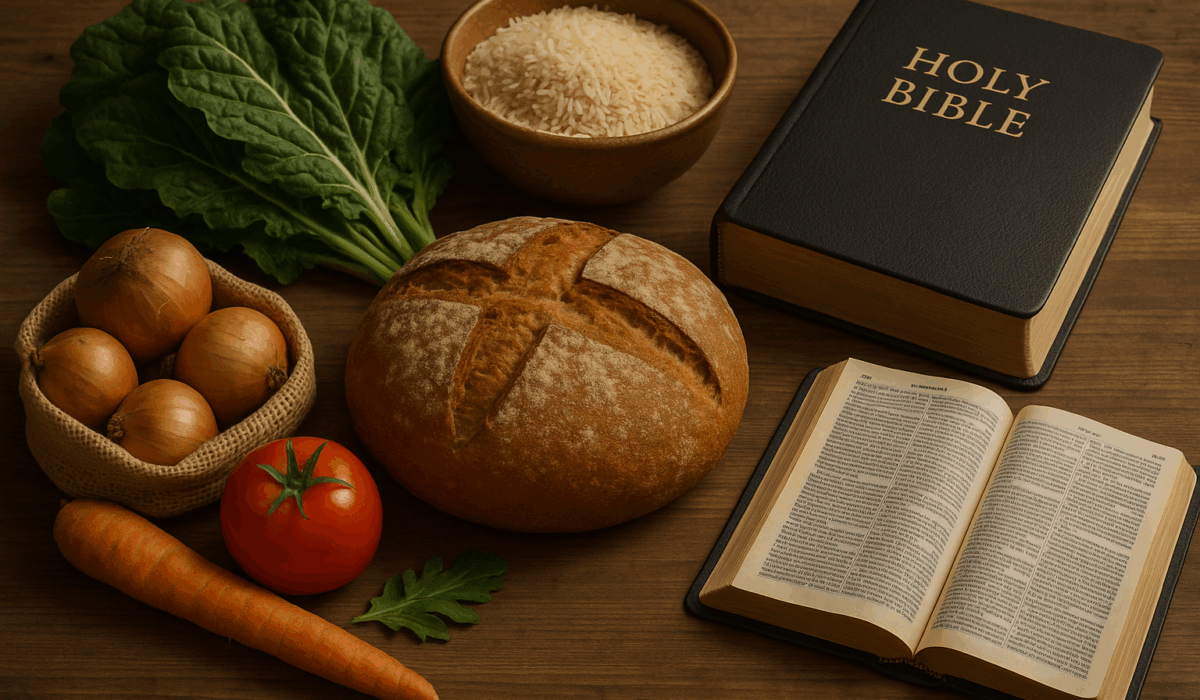Modern Christianity has adopted many lies, but none more destructive than the idea that a woman can—and should—be autonomous. The culture prizes the “independent woman.” The church parrots the same mantra in softer tones. But Scripture knows nothing of this. God never created woman to stand alone. She was made for order, and she flourishes under headship.
A woman is required by God to be under male authority at all times—from her father’s house, to her husband’s house, and in some cases under the governance of church elders. This is not optional. It is not conditional. It is not a matter of preference. It is a covenantal design, etched into creation and enforced by divine command.
“But I would have you know, that the head of every man is Christ; and the head of the woman is the man…”
— 1 Corinthians 11:3
This structure is not cultural—it is creational. It is not bondage—it is blessing. And when it is violated, chaos, heartbreak, and destruction follow.
I. Headship in Creation: Woman Was Made for the Man
We must begin where God begins: in Genesis. Adam was made first, formed from the dust by the breath of God. He was given a mission—to take dominion. But God said, “It is not good that the man should be alone; I will make him an help meet for him.” (Genesis 2:18)
The woman was not made as a co-leader. She was not designed as an independent entity to explore her identity. She was made for the man, from the man, and to the man.
“For the man is not of the woman; but the woman of the man. Neither was the man created for the woman; but the woman for the man.”
— 1 Corinthians 11:8–9
This is the creation order, and it never changes. A woman, by nature and design, must be under the loving rule of godly headship. When she is, she is protected, fruitful, and secure. When she is not, she is vulnerable, unstable, and easy prey for deception.
This is not conjecture. This is exactly what happened in Eden.
II. The Fall: What Happens When Headship Is Abandoned
In Genesis 3, the serpent bypassed the man and went to the woman. He inverted God’s order. And Adam, instead of protecting and ruling, abdicated his role. Eve was deceived. Adam was derelict. And humanity fell.
“And Adam was not deceived, but the woman being deceived was in the transgression.”
— 1 Timothy 2:14
This is not an insult to women—it is a divine warning. When a woman steps outside of headship, she is in danger. When a man steps away from authority, he invites judgment.
Headship is not a human construct. It is a spiritual defense system, and when it is removed, the home collapses, the culture deteriorates, and the church weakens.
III. A Woman’s Three Primary Headships
Biblically, a woman is to be under male authority throughout the entire course of her life:
1. The Father
“And ye shall teach them your children, speaking of them when thou sittest in thine house…”
— Deuteronomy 11:19
From birth, a girl is under the governance of her father. He is to train her, protect her, and guard her purity. He is responsible to keep her from danger—whether moral, spiritual, or relational.
In Numbers 30, God gives laws governing the vows of women. If a daughter makes a vow and her father hears it and disallows it, the vow is nullified. Why? Because she is under his jurisdiction.
“If a woman also vow a vow unto the Lord, and bind herself by a bond… being in her father’s house… and her father disallow her… then shall the Lord forgive her.”
— Numbers 30:3–5
This is legal headship. Fathers are not optional. They are God’s appointed guardians for daughters.
2. The Husband
“Wives, submit yourselves unto your own husbands, as unto the Lord. For the husband is the head of the wife…”
— Ephesians 5:22–23
When a woman marries, headship passes from father to husband. She is no longer her father’s responsibility. She becomes her husband’s charge, and she is to obey him as the church obeys Christ.
“Even as Sara obeyed Abraham, calling him lord.”
— 1 Peter 3:6
This is not poetic—it is prescriptive. A woman does not lose value under authority—she gains security, direction, and honor.
3. The Eldership (in cases of widowhood, orphanhood, etc.)
When a woman has no husband and no father, she is not to drift alone. She comes under the elders of the church, the patriarchs of the community.
“Honour widows that are widows indeed… Let not a widow be taken into the number under threescore years old, having been the wife of one man…”
— 1 Timothy 5:3–9
The early church had rules and order for widows, indicating that even in their singleness, they were not to function independently. They were under the governance of the patriarchal church, and the younger widows were exhorted to remarry (1 Timothy 5:14).
IV. The Dangers of Female Autonomy
When women are not under headship, the results are devastating:
- Sexual sin abounds. Young women without oversight are easy prey for seduction and fornication.
- Feminism takes root. Women begin to believe they are their own authority.
- Children are raised fatherless. Single mothers often reject correction and multiply generational disorder.
- Churches are disrupted. Uncovered women bring emotional chaos and spiritual confusion.
“Woe unto them that are wise in their own eyes, and prudent in their own sight!”
— Isaiah 5:21
Headship is not oppression. It is protection. It keeps a woman from the deceit of Satan and the judgment of God.
V. What About Special Cases?
1. The Divorced Woman
Divorce does not grant a woman independence. It places her in a vulnerable state—one that Scripture addresses soberly. If the divorce was lawful (on grounds of adultery or abandonment by an unbeliever—Matthew 5:32, 1 Corinthians 7:15), she may remain unmarried or be reconciled to her husband. But she is not now a “free agent.”
She should:
- Come under patriarchal church leadership for spiritual covering.
- Pursue re-marriage if it is biblically permitted.
- Raise children in submission to godly counsel.
She is not head of her house. If she has sons, they must be trained under male discipleship. If she has daughters, they must be shielded from repeating her mistakes.
2. The Widow
The widow, too, is to be protected by the church. Paul instructs that young widows should marry (1 Timothy 5:14). Why? Because a woman left uncovered will be drawn into idleness, gossip, and temptation (v. 13).
Older widows are to be honored (1 Timothy 5:3), but they are still subject to the church’s order. They may not remarry. But they may disciple younger women (Titus 2:3–5), and must maintain spiritual covering and accountability.
3. The Orphaned or Unmarried Daughter of a Non-Christian Home
A young woman raised outside of the faith must not interpret her background as justification for independence. If her father is unbelieving, she must:
- Submit under spiritual fathers—church elders, pastors, or godly men in the community.
- Pursue biblical courtship under spiritual authority—not casual dating or autonomy.
- Be adopted into the household of God, where she is no longer a lone sheep but part of a covenant flock.
Even in pagan cultures, daughters were understood to belong to their fathers until given in marriage. The modern Western idea that a woman is “on her own” at 18 is rebellion disguised as liberty.
VI. Historical Witness
Throughout Church history, the principle of continuous female headship was unquestioned:
- In early Israel, a daughter’s virginity was the father’s responsibility (Deuteronomy 22:13–21).
- In medieval Christendom, daughters could not marry without paternal approval, and widows were overseen by church authorities.
- Reformers like John Calvin and Martin Luther emphasized the father’s authority in arranging godly marriages and condemned female independence as prideful and disorderly.
- Puritan families in early America treated daughters as part of the household government until they were transferred in marriage.
It is only in recent history, with the rise of Enlightenment individualism and second-wave feminism, that we see the normalization of female autonomy, a disaster for faith, family, and civilization.
VII. The Blessing of Headship
When a woman is properly covered by male headship, the result is fruitfulness, peace, and joy.
- She does not carry the burden of spiritual leadership.
- She is defended from predators and wolves.
- She is directed in righteousness.
- She is shielded from emotional instability and deception.
- She glorifies God by knowing her place—and delighting in it.
This is not humiliation—it is holy order. It is not shameful—it is sacred.
“Let the woman learn in silence with all subjection.”
— 1 Timothy 2:11
This kind of subjection brings honor, protection, and praise. A woman who abides under headship is a builder of nations, a nurturer of kings, and a daughter of Sarah.
Conclusion: Always Covered, Always Blessed
The lie of female autonomy has destroyed generations. It has produced bitterness, barrenness, fatherlessness, and faithlessness. But the Lord calls women back, not to self-rule, but to submission.
Whether a daughter, a wife, a widow, or a woman rescued from the ruins of rebellion, every godly woman must be under righteous headship at all times.
Fathers, cover your daughters.
Husbands, lead your wives.
Elders, shepherd the uncovered.
And women, rejoice to be ruled.
You were not made to be alone. You were made to be covered.
And under that covering, you will be blessed, fruitful, protected, and glorified.
Let the feminists rage.
Let the church grow bold.
Let the Great Order be restored—one household at a time.


